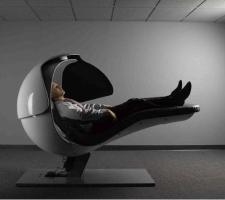October 3, 2014
Julian Assange escapes incarceration to take part in conference as a hologram
[embedplusvideo height=”200″ width=”230″ editlink=”https://bit.ly/1x5tY4Y” standard=”https://www.youtube.com/v/3EjcSc_44vE?fs=1&vq=hd720″ vars=”ytid=3EjcSc_44vE&width=230&height=200&start=&stop=&rs=w&hd=1&autoplay=0&react=0&chapters=¬es=” id=”ep1089″ /]
We have grown accustomed to the way technology distorts time and space. This, after all, is the underlying tension that defines each of the major debates about the workplace, including flexible working, office design, facilities management and the acquisition of commercial property. But, as they say, we ain’t seen nothing yet as the next generation of technologies starts to scale the upslope of the diffusion of innovation curve. People have been talking about telepresence for a little while, but it is about to achieve mainstream awareness thanks to events such as the appearance of Wikileaks Founder Julian Assange at a conference in the USA last week. Assange is famously holed up in London in the Ecuadorian Embassy, challenging his extradition to Sweden to face trial and can’t leave the building without being arrested. So the way he appeared at the conference in Nantucket was as a hologram.
























September 16, 2014
Indoor air quality and the quest for a breath of fresh air in the workplace
by Justin Miller • Comment, Facilities management, Knowledge, Legal news, Workplace design
Edward Hopper, Office in a Small City, Metropolitan Museum of Art, NY
The modern workplace has to work harder than ever before. It must reflect corporate values, express something of the organisation’s brand, allow people to work to the best of their ability as well as look after their wellbeing, keep touch with the pace of changing technology and meet the demands of an ever changing legislative environment and keep costs down. All of these issues conflate around the challenge of providing a sustainable, comfortable and productive working environment in buildings that are filled with an increasing number of people and computers. It is estimated by the Building Research Establishment that even in a typical office each person and their technology will generate some 1500 W of energy per hour, the equivalent of the sort of fan heater that the EU is now keen to ban outright.
(more…)